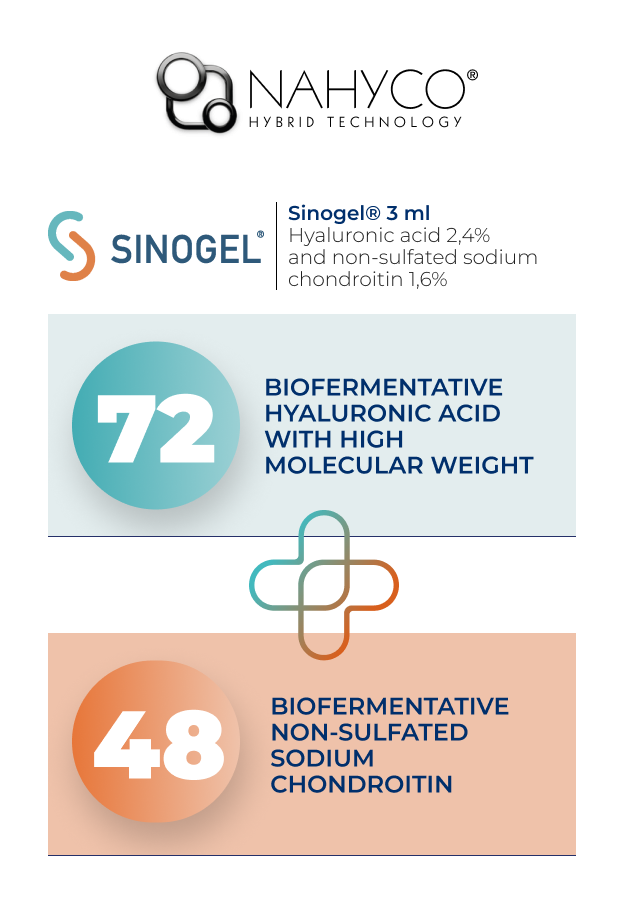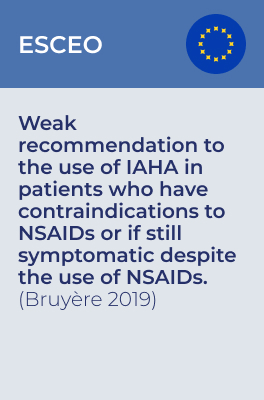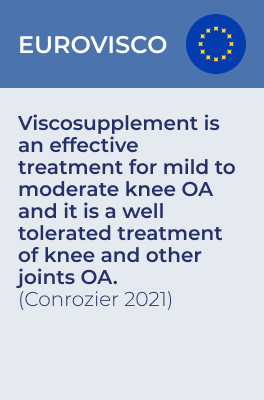Treatments
THERAPEUTIC APPROACH
Optimal management of OA should be personalized for each patient with treatments aimed at reducing pain and stiffness, and subsequently focused on maintaining physical functionality7.
Conservative treatments can include physiotherapy and behavioural education, pharmacological therapy, TENS, magnetotherapy, intra-articular infiltrative therapies with hyaluronic acid, steroids, platelet-rich plasma (PRP), or surgical options18.
SEVERITY OF SYMPTOMS
Move the cursor over the line to discover the treatment based on symptoms 19
Background treatment
If symptomatic
Chronic Symptomatic Slow-Acting Drug for Osteoarthritis (SYSADOA):
Glucosamine sulfate and/or chondroitin sulfate ± as needed paracetamol
Referral to physical therapist
If still symptomatic ADD
Topical non-steroidal anti-inflammatory drugs
advanced pharmacological management
in the persistent symptomatic patient
Anti-inflammatory drugs *
Intraarticular hyaluronate/corticosteroids
*Preferred with concomitant PPI Be mindful of complication in increased gastrointestinal risk Limit use of any NSAIDs in increased cardiovascular risk Avoid NSAIDs in increased renal risk
Last pharmacological attempts
Short term weak opioids – antidepressant
End-stage disease management and surgery
Arthroplasty
The ESCEO guidelines propose a scheme based on various therapeutic scenarios that, in the presence or absence of persistent symptoms, suggest progressively more incisive approaches starting from increasingly important non-pharmacological treatments (physical activity, physiotherapy, etc.), moving to more structured pharmacological therapies (Chondroprotectors, infiltrative therapy with hyaluronic acid, anti-inflammatories, weak opioids), and ultimately to surgical procedures up to prosthetic replacement where necessary.
LINEAR FORMULATIONS
The development of advanced production techniques, such as biofermentation, has made it possible to obtain high-purity hyaluronic acid with low levels of proteins and endotoxins.
IBSA has leveraged these innovations to develop linear formulations for viscosupplementation using ultra-pure, biofermentative Italian hyaluronic acid, which is of high quality and safe.
SINOVIAL® 16
Biofermentative linear hyaluronic acid with high molecular weight

SINOVIAL® 32
Biofermentative linear hyaluronic acid with high molecular weight
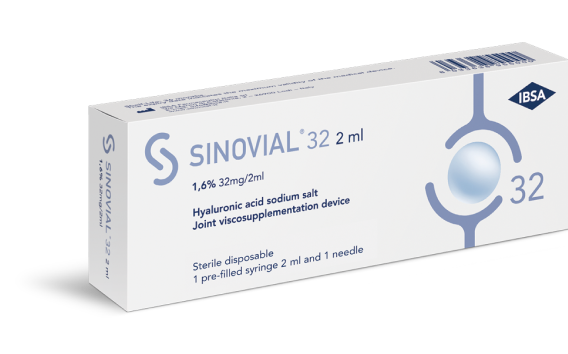
HYBRID FORMULATIONS
Developed using the NAHYCO® Hybrid Technology, SINOVIAL® is an effective treatment that combines the mechanical effect of high molecular weight hyaluronic acid (HHA) with the biological and regenerative action of low molecular weight hyaluronic acid (LHA).
- Reduces pain and improves joint function.
- Improves healthy Synovial fluid reconstitution.
- Effective and safe in the treatment of knee cartilage lesions, hip and knee Osteoarthritis, and hand Osteoarthritis.
SINOVIAL® HL 32
High-molecular-weight hyaluronic acid chains and low-molecular-weight hyaluronic acid chains held together by hydrogen bonds
Biofermentative hyaluronic acid with high molecular weight and biofermentative hyaluronic acid with low molecular weight.
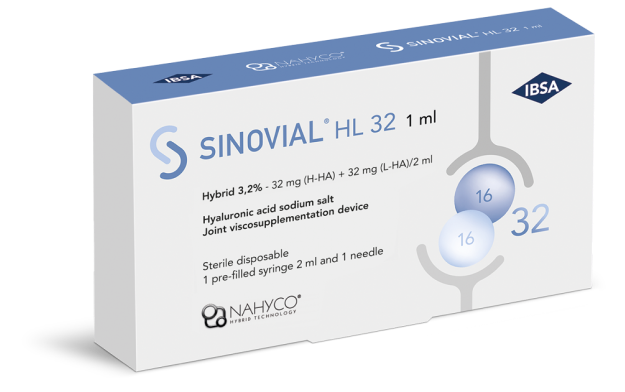
SINOVIAL® HL 64
High-molecular-weight hyaluronic acid chains and low-molecular-weight hyaluronic acid chains held together by hydrogen bonds
Biofermentative hyaluronic acid with high molecular weight and biofermentative hyaluronic acid with low molecular weight.
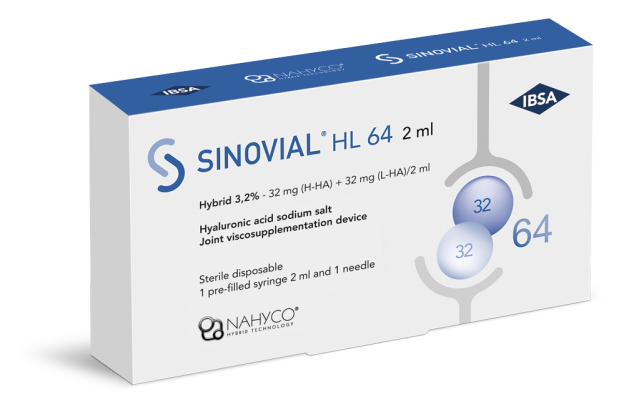
SINOGEL®
Biofermentative hyaluronic acid with high molecular weight combined with biofermentative non-sulfated sodium chondroitin .
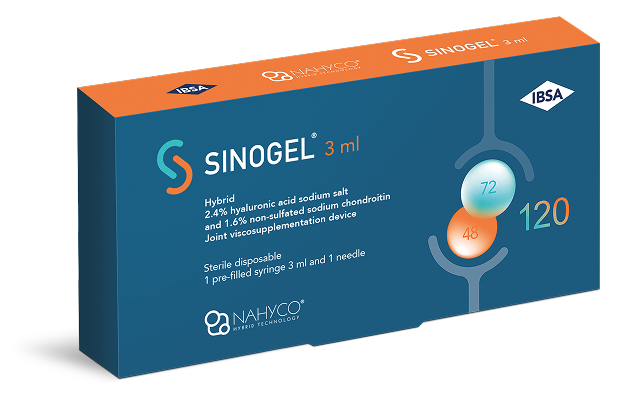
Developed using the NAHYCO® Hybrid Technology, SINOGEL® is a treatment that combines the mechanical effect of high molecular weight hyaluronic acid with the anti-inflammatory biological activity of non-sulfated sodium chondroitin.
- Improves joint pain and functionality.
- Restores and replicates the viscoelastic characteristics of hyaluronic acid present in the synovial fluid.
- Improve biomechanical joint performance
